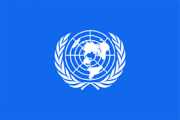Madame President
I have the opportunity to speak on behalf of the fourteen Member States of the Caribbean Community, CARICOM. I thank you for organizing today’s open debate on the theme: Threats to international peace and security: Securing borders against illicit flows. As a region, which due in part to its geography is faced with the daily challenge of securing large, porous and remote sea and land borders against the illicit flows of guns and ammunition, illegal drugs and the trafficking of persons, this matter is of particular relevance.
For CARICOM States the illicit flows of guns and ammunition, as well as illicit drugs, across our borders constitutes not only a crime and security challenge, but also represents an existential threat to our present way of life and current efforts being undertaken to establish safe, secure and developed societies for our people.
In recognition of the inter-linked nature of growing levels of crime and violence in the region fueled by the illicit movement of drugs, guns and ammunition, CARICOM Leaders, in 2007, established crime and security as the fourth pillar of the region’s integration. CARICOM Member States, both collectively through the conclusion of the 2011 CARICOM Declaration on Small Arms and individually have been undertaking a number of measures to secure our borders against illicit flows. In recognition of the potential cross-cutting gains that can be realized through securing our borders, border management and security have thus become one of CARICOM’s major security priorities.
Working through the CARICOM Implementation Agency for Crime and Security, (CARICOM IMPACS), in collaboration with the Caribbean Centre for Development Administration, efforts have been undertaken in various CARICOM Member States to harmonise and standardize policies, practices and procedures utilized by border security agencies throughout the region. In addition to the harmonization of policies numerous training and education programmes are being undertaken. In conjunction with our bilateral partners including most notably, the USA through the Caribbean Basin Security Initiative CARICOM Governments have been actively taking steps to protect our borders and our societies. Other regional partners that have contributed to our efforts to secure our borders include the OAS, UNODC, and UNLIREC.
While the major challenges facing the region are posed by illicit drugs, guns and ammunition, as States Parties to the major international terrorism instruments, and in view of our commitments to the implementation of the relevant UNSC resolutions, CARICOM Member States have also taken steps to secure our borders against the illicit flows of money and equipment that could also be used to commit acts of terror, in the region or elsewhere.
At the international level, CARICOM Member States have also advocated that greater attention be placed on the issue of border control as a component of the broader crime prevention measures and specifically to prevent the flows of small arms and light weapons and ammunition to the region, in particular, within the context of the UN Programme of Action to Prevent, Combat and Eradicate the Illicit Trade in Small Arms and Light Weapons in All its Aspects. CARICOM has also long advocated that if we are to prevent, combat and eradicate the illicit trade in small arms and light weapons, in all its aspects, we must also address the questions of ammunition and the cross-border movement of these weapons.
While Member States have been taking steps at the national and regional levels to secure their borders, at the international level, much more work needs to be done. CARICOM is of the view that the United Nations has an important role to play in assisting member States to improve their capacity in the area of border security and management, given its long-standing experience, including in facilitating technical assistance.
While there has been significant attention focused on stemming the illicit flows of materiel that could be used to commit acts of terror across borders, similar high-level focus also needs to be directed to stemming the illicit flows of small arms and light weapons and ammunition.
In acknowledging the distinctions between the different categories of illicit items that flow across national borders, a more comprehensive approach to border management and security, by the UN, will in our view prove to be a more effective approach in the long run. Greater symmetry in securing borders against the illicit flows of chemical, biological and nuclear material, as well as the illicit flows of conventional weapons, including small arms and light weapons and their ammunition, will significantly contribute to the goal of international peace and security.
CARICOM agrees with the proposal outlined in the concept note for an assessment to be conducted into the different UN structures with a view to determining the extent to which they are meeting states capacity-building needs in this vital area; and improving the Organisation’s ability to help Member States counter illicit flows. At the same time however, such a review and attempts to address this issue in a holistic manner should not lead to any contraction in the capacity building programmes and projects currently afforded to Member States in this vital area.
We would also urge that in the context of such a review, that attention be paid to the specific challenges being faced among countries and regions, in the design and delivery of future projects. In this context, we would reiterate our hope that on the basis of the ongoing discussions between CARICOM Member States and the UNODC that the Caribbean UNODC regional office will soon be re-opened. CARICOM remains convinced that this regional office will play a vital role in assisting countries of the region to build their capacity to reduce the illicit flows of guns, drugs and other materiel, including through strengthened border management and security, and in so doing, achieve our goals of a safe and secure region.


